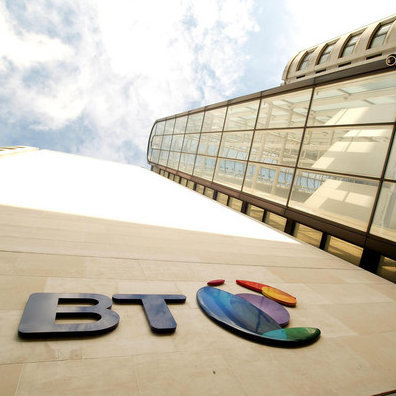Also in today's EMEA regional roundup: Telecom Italia negotiates layoffs agreement; Telefónica soft-launches O2 brand in Spain; more 5G fun from Nokia.

Also in today's EMEA regional roundup: Telecom Italia negotiates layoffs agreement; Telefónica soft-launches O2 brand in Spain; more 5G fun from Nokia.
BT Group plc (NYSE: BT; London: BTA) is laying claim to a new era of "ultra-secure" Internet connectivity with the building of a fiber network at its labs in Ipswich, UK, that uses quantum technology to render it (gulp) "unhackable." The way it works is like this: The quantum link relies on the use of single particles of light, or photons, to transmit data encryption "keys" across the fiber. Should the transmission be intercepted or interfered with, the sender will be able to tell that the link has been tampered with and the stolen photons cannot then be used as part of the encryption key, rendering the data stream incomprehensible to the would-be hacker. The trial, carried out in a project led by the Quantum Communications Hub, is being run on optical gear from ADVA Optical Networking .
Telecom Italia (TIM) has thrashed out a deal with the labor unions which will see it effectively reduce its headcount by the equivalent of 4,500 workers through what are (rather weirdly) called "solidarity measures." As Reuters reports, solidarity measures entail employees agreeing to reduce their working hours for an equivalent cut in pay, and the measures agreed in this deal will affect 30,000 Telecom Italia workers over 12 months. The move is the latest example of a telco cutting costs through a reduction in staffing levels. (See Telecom Italia Plots Layoffs, Slams Unions and Big Telcos Have Slashed 107K Jobs Since 2015.)
Today sees Telefónica "soft-launching" its O2 brand in Spain, with a mobile-only or mobile-plus-fiber service aimed at the higher end of the market. (The Tuenti brand will be retained for the riff-raff.) The mobile-only version offers 20GB of data per month, unlimited national calls and unlimited SMS, and is priced at €20 (US$23.56) a month. The fiber-plus-mobile option includes all the above plus 100 Mbit/s symmetrical broadband fiber and a landline telephone with unlimited calls to national landline numbers, for €45 ($53) a month. The full launch of the O2 services, with the appropriate commercial ballyhoo, will take place in September.
Nokia Corp. (NYSE: NOK) has hatched another set of 5G-related services, including 5G Digital Design concept, which uses AI to simulate 5G use cases to accelerate network design, and Cross-Domain Architecture, which enables operators to transition multivendor networks to 5G.
Elsewhere in Nokialand, in China to be precise, the vendor says it has successfully completed an "end-to-end 5G New Radio (5G NR) data call" as part of a government-led trial. The 3GPP-compliant dual-connectivity call was carried using a 5G NR system over-the-air on the 3.5GHz band and LTE in the 2.1GHz band, supported by a 5G user equipment simulator provided by Prisma Telecom Testing.
Belgium's BICS has opted for Netcracker Technology Corp. 's Service, Network and Infrastructure Management OSS platform to help it upgrade its core network and service operations.
Swedish cable operator Com Hem AB has chosen Eurofins Digital Testing to provide automated testing and service validation services for its new TV Hub, an Android TV UltraHD/4K hybrid set-top box that comes with integrated Google TV services.
More soccer World Cup news: Spain's Fon is to provide WiFi in more than 10,000 locations in Russia during the course of the tournament, thanks to an agreement with ER Telecom. Access to the WiFi networks will be provided by a new Fon WiFi app, which is available globally.
— Paul Rainford, Assistant Editor, Europe, Light Reading
About the Author(s)
You May Also Like











